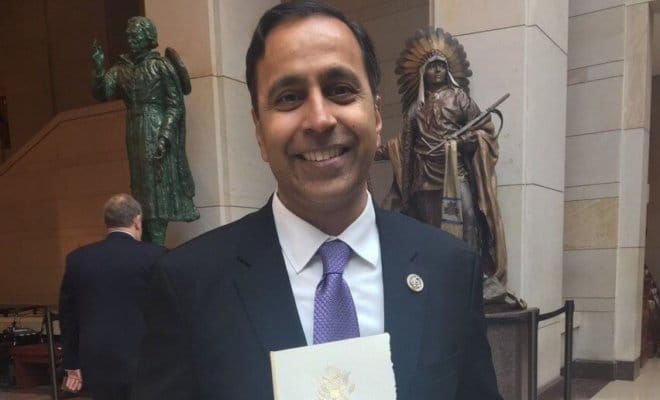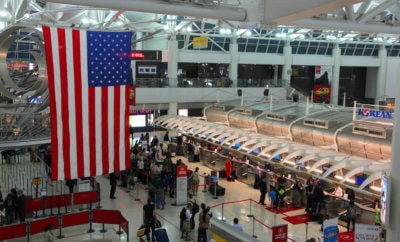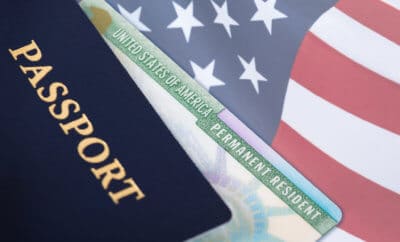Immigration
Indian American Congressman Introduces Bill to Grant H-1B Holders Flexibility to Change Jobs

Raja Krishnamoorthi
Photo: Twitter/ @CongressmanRaja
Raja Krishnamoorthi and Mike Coffman have introduced a legislation in the House of Representative to give H-1B visa holders the flexibility to change jobs without losing legal status and increase investment in American STEM education.
Indian American Congressman Raja Krishnamoorthi has introduced a bill to reform and streamline the H-1B visa to allow visa holders to easily switch jobs without losing legal status while increasing investment in American Science, Technology, Engineering, and Mathematics (STEM) education.
Krishnamoorthi was backed by Colorado Representative Mike Coffman in introducing H.R. 6794, “Immigration Innovation Act of 2018″ in the House of Representative on Sept. 13.
“To develop the skills of our domestic workforce, our bill increases investments in our education system to guarantee that American workers are trained for high-tech jobs. It also reforms the visa system for highly-skilled workers which allows American businesses to compete in the global economy,” Krishnamoorthi said.
The lawmakers said that if the Congress passes the bill and president signs it into law, it will grant H-1B visa holders the flexibility to move to new jobs while allowing their spouses holding H-4 visas the right to continue their careers. It will also reduce green card backlog by expanding education-based exemptions from per-country caps for H-1B holders as well as reduce demand by allowing U.S. university-educated professionals to apply directly for conditional green cards.
“Our immigration policies must fit with the economic needs of our country,” said Coffman. “One critical part of Congress’ job is ensuring that immigration laws match our country’s high-tech workforce requirements as well as meet the needs of H1-B visa applicants and their families.”
Both the lawmakers said that the legislation would ban employers from hiring H-1B visa holders to replace American workers while increasing funding for STEM education at the K-12, post-secondary, and university levels. Under the bill, fees collected for H-1B visas and conditional green cards will go to state-administered funds to promoted domestic STEM education and worker training, including financial aid and research initiatives. These expanded investments in advanced training for the domestic workforce, thanks to the Immigration Innovation Act would ultimately reduce demand for foreign workers while helping the American economy grow.
Other key elements of H.R. 6794 include removal of existing annual exemption cap on H-1B visas for holders of U.S master’s degrees or higher, which currently exempts 20,000 per year, for individuals who are sponsored for a green card and narrowing of education-based cap exemption to those with U.S. Ph.D.
It proposes creation of lottery prioritization for cap-subject petitions for U.S. masters or higher, foreign Ph.Ds, and U.S. STEM bachelor’s degrees, in that order.
It also seeks to establish a grace period to allow H-1B visa holders to change jobs without losing their legal status to permit mobility under qualifying circumstances.
The bill also imposes penalty for employers that have more than five H-1B employees, for each employee that has worked less than 25 percent of the first work-authorization year, and prohibits employers from hiring an H-1B visa worker to replace a U.S. worker.
Besides, the bill will provide work authorization for spouses and dependent children of H-1B visa workers at the prevailing wage. It also eliminates per-country limit for employment-based green cards and adjusts per-country caps for family-based green cards. It will also enable reassignment of unused visas from previous years.
It exempts spouses and children of employment-based green card holders, holders of U.S. STEM master’s degrees or higher, and individuals with extraordinary skill in arts and sciences from any caps.
The bill would help create a new conditional green card category to allow U.S. employers to sponsor university-educated foreign professionals through a separate path from H-1B and enable F-1 student visa holders to seek permanent resident status while being a student or during Optional Practical Training.



